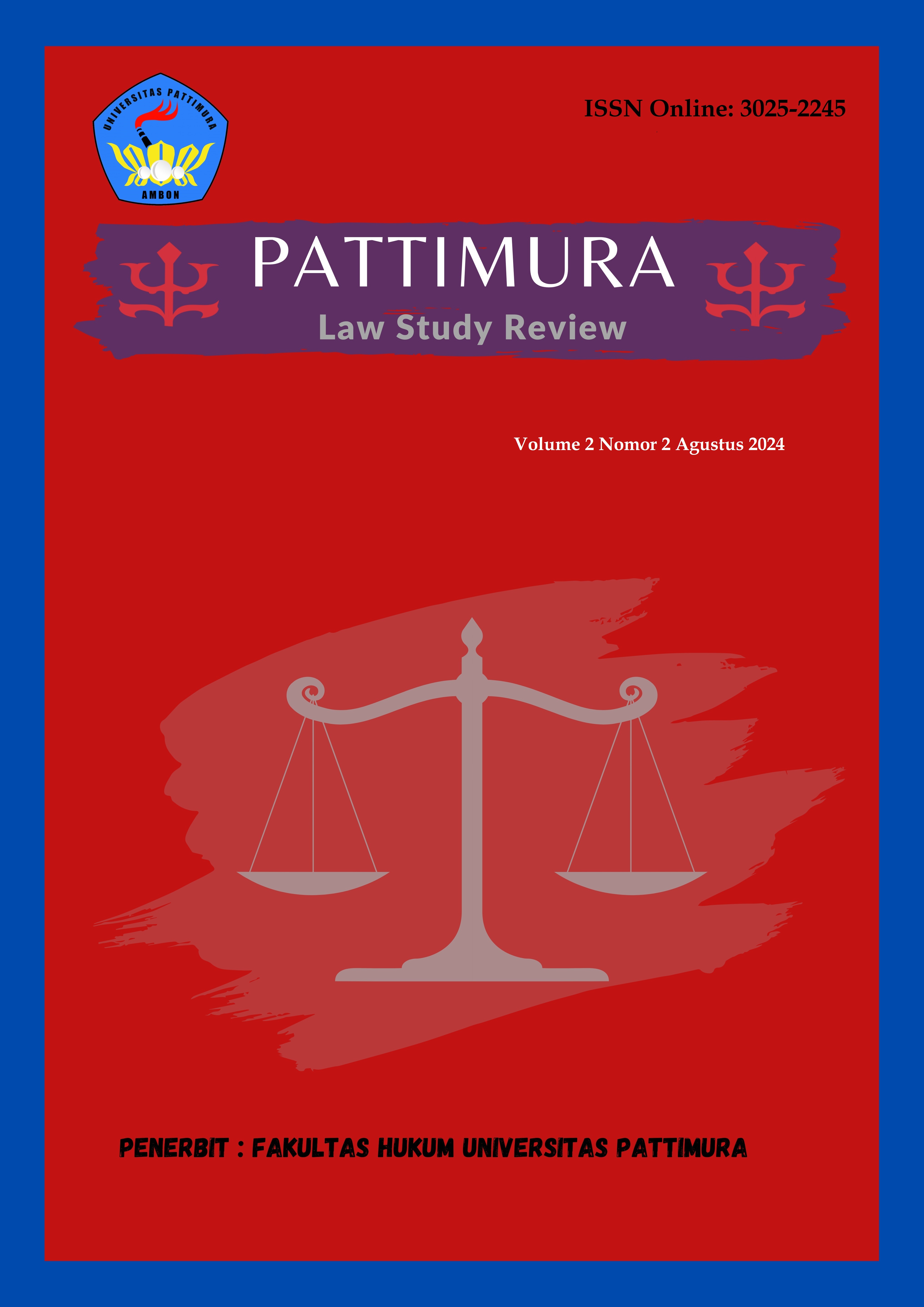Tanggug Jawab Suami Istri Terhadap Hutang Bersama Setelah Penceraian
Abstract
The responsibility of married couples in settling joint debts after divorce is a very important thing to study. The reason is, there is no provision in Indonesia's positive law that regulates the settlement of joint debts after the dissolution of a marriage, which results in the parties not knowing how to settle joint debts, and also in certain cases will cause losses to one of the parties, both husband and wife who bear a larger amount of debt so that there is an injustice in the distribution of the debt. The method used in this study is normative juridical, to analyze legal problems contained in laws and regulations. The results of the study show that regarding the position of joint property between husband and wife during marriage in accordance with article 35 paragraph (1) property obtained during the marriage period becomes joint property, and under joint control where its use must be with mutual consent. After divorce, if referring to article 37 of the Marriage Law, the joint property is divided according to their respective laws, but in general, the joint property is divided equally between the ex-husband and wife according to the property obtained during the marriage period. Regarding the responsibility for joint debts, referring to article 35, joint debts used to meet the needs of the household and by mutual consent can be considered part of the joint property and the responsibility of the debt must be divided equally between the ex-husband and wife in order to create justice.
Downloads
References
Jurnal
Agustin Hanapi, M. Furqan, Konsep Penyelesaian Hutang Bersama Suami Siteri Ditinjau Menurut Hukum Islam Dan Hukum Positif, Ahkamul Usrah : Jurnal Keluarga Dan Pradilan Islam, Vol 1 No 1 (2021).
Barzah Latupono, Pertanggungjawaban Hukum Ayah Terhadap Anak Setelah Terjadinya Perceraian, SASI Volume 26 Nomor 2, April - Juni 2020.
Barzah Latupono, Penyelesaian Perkawinan Yang Tidak Memenuhi Syarat Perkawinan Melalui Isbath Nikah, Jurnal Hukum & Pembangunan, Vol 49, 2019.
Barzah Latupono, dkk, Penyuluhan Hukum Tentang Penyelesaian Sengketa Perkawinan Dengan Menggunakan Pranata Adat Saudara Kawin Di Pulau Haruku Kabupaten Maluku Tengah, Jurnal Pengabdian Hukum, Vol. 3. No. 2, September 2023.
Mahrita Aprilya Lakburlawal, dkk, Perceraian Yang Dilakukan Oleh Pasangan Yang Melakukan Perkawinan Beda Agama, Pattimura Law Study Review, Volume 1 Nomor 1 Agustus, 2023.
Buku
Budi Susilo, Prosedur Gugatan Cerai, Cetakan Ketiga, Pustaka Yustisia, Yogyakarta, 2008.
Dedi Susanto, Kupas Tuntas Masalah Harta Gono-Gini, Cetakan Pertama, Pustaka Yustisia, Yogyakarta, 2011.
Dominikus Rato, Hukum Perkawinan dan Waris Adat di Indonesia (Sistem Kekerabatan, Perkawinan dan Pewarisan Menurut Hukum Adat), Laksbang Pressindo, Yogyakarta, 2015.
Hilman Hadikusuma, Hukum Perkawinan Indonesia, menurut Perundangan, Hukum Adat, sipHukum Agama, Cetakan 1 (Bandung, Mandar Maju, 1990).
J. Satrio, Hukum Harta Perkawinan, (Bandung: Citra Aditya Bakti, 1991).
M. Yahya Harahap, Perlawanan terhadap eksekusi, Citra Aditya Bakti Bandung, 1993.
R. soetojo Prawirohamidjojo, Hukum orang dan keluarga, (Bandung: Alumni, cet. 5, 1986).
Taufiq, Peradian Keluarga Indonesia, Dalam Hukum Keluarga dan Peradilan Keluarga di Indonesia, Mahkamah Agung RI, Jakarta, 2000.
Copyright (c) 2024 Fatma Resdiana Sukur, Barzah Latupono, Mahrita Aprilya Lakburlawal (Author)

This work is licensed under a Creative Commons Attribution-NonCommercial 4.0 International License.
Authors who publish their manuscripts in this Journal agree to the following conditions:
- The copyright in each article belongs to the author, as well as the right to patent.
- Authors are able to enter into separate, additional contractual arrangements for the non-exclusive distribution of the journal's published version of the work (e.g., post it to an institutional repository or publish it in a book), with an acknowledgment of its initial publication in this journal.
- Authors are permitted and encouraged to post their work online (e.g., in institutional repositories or on their website) prior to and during the submission process, as it can lead to productive exchanges, as well as earlier and greater citation of published work.
- Authors have the right to self-archiving of the article (Author Self-Archiving Policy)













